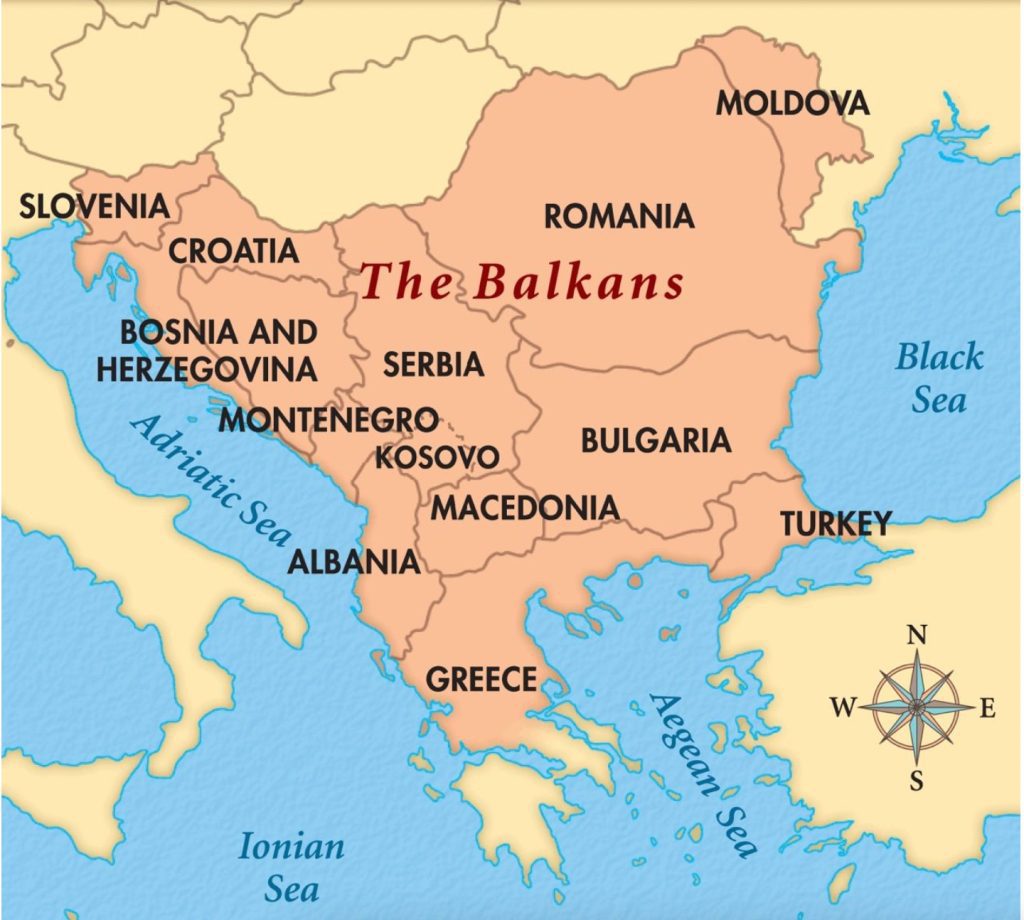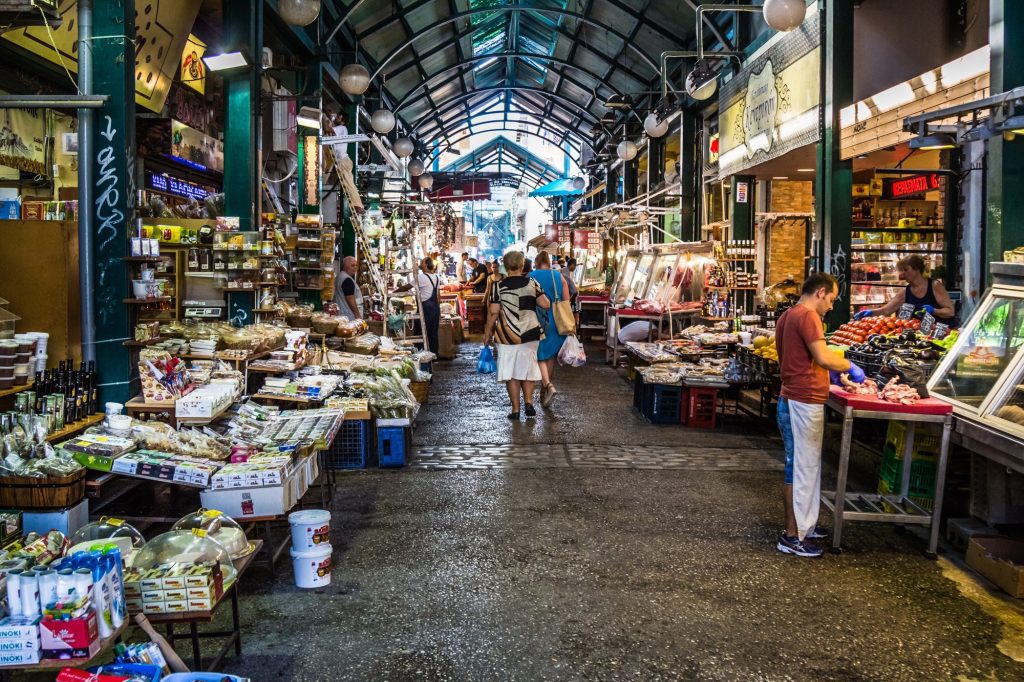Call us now (+1) 646-693-8373
| Destinations | Contact Us |
Call us now (+1) 646-693-8373
| Destinations | Contact Us |
Call us now (+1) 646-693-8373
| Destinations | Contact Us |
Balkan Tours – One merely has to travel to the rather amazing region of southern Europe known as the Balkans to grasp why. It is a melting pot of everything, really. Geographically, geographically, socially, culturally, historically, and gastronomistically, the Balkans offer the ideal mix for those wishing to indulge every one of their senses.
Here Europe welcomes the Orient; here Christians and Muslims have coexisted for millennia creating their own social and cultural fabric. Following the legacy of each country, set out a complete exploration with tastes of Bulgaria, Serbia, Bosnia & Herzegovina, Croatia, Montenegro, Albania, Romania, Macedonia and Greece.
Eskapas Travel presents a fantastic chance to find the absolute best this interesting area has to offer. As you journey from one breathtaking site to the next, you will see the amazing variation—cultural and natural as well. These long-awaited vacation packages feature several amazing nations and highlight some of their most sought-after gems thanks to their well thought out schedules.
Didn’t you find your perfect Balkan vacation package? Use our convenient search and filter options, tailor-making a journey that captures world’s unique beauty and rich heritage just for you.
There are many Eskapas Balkan tour packages available, each with its own unique itinerary. Some of the most popular package tours start from different cities such as Sofia, Dubrovnik, Bucharest, and Athens in order to allow you to choose the best flight. The following frequently asked questions will help you to guide you before choosing your best vacation package in Balkan countries.
April to to November are the best times to visit because the summers are very hot and the winters are cold or wet, so the weather is better in Spring and Autumn. Some more touristy destinations, such as Croatia, will be busy during peak seasons, such as Easter and summer. Albania’s beautiful beaches can get very busy in August.
The word Balkan actually comes from the Turkish language and means ‘mountain’ and is therefore a highly appropriate name for the region.
The most common religions in the Balkans are Eastern Orthodox and Catholic Christianity and Islam (mostly Sunni or non-denominational) but this varies by region.
Yes, the Balkans is a very safe area to travel! The area is often associated with war, however, it has been peaceful for over 20 years. In busier tourist areas, such as Dubrovnik, beware of the usual pickpockets and be sensible as you would in any other tourist location. Driving in the Balkans can be a bit wild so we would always advise full insurance when renting a car. It’s also a good idea to check over the local highway codes and plan your route out in advance because some roads may still be little more than dirt tracks. This was our biggest safety concern when travelling the Balkans, both as drivers and pedestrians! There are many stray dogs in some cities but most are friendly and will approach you for attention or food. Just be aware that they are not always treated for rabies or fleas.
Albania, Bosnia & Herzegovina, Bulgaria, Croatia, Kosovo, Montenegro, North Macedonia, Romania, Serbia,Turkey, Moldova and Slovenia are all or partly located within the peninsula.

Parts of Greece and Turkey are also geographically in the region and many descriptions of the Balkans include these countries. Moldova is also included in the Balkans, under some definitions, due to its close connection with Romania.
The great thing about the Balkans is that most of the countries are out of the Schengen zone. Greece and Slovenia are the only countries that are in the zone and so make sure you only spend 90 days out of 180 days within the Schengen countries.
The Balkans is incredibly common for travelers because of their majority exclusion from the zone. Depending on where you’re from, of course, in most countries you will get a maximum of 3 months within each country out of the Schengen. But make sure you always double-check your own countries requirements.
Are you planning to visit naturally beautiful and culturally diverse Balkans? Ever dreamt about Bulgaria, Serbia, Bosnia and Herzegovina, Montenegro, Albania, Macedonia, Romania, Croatia and Greece are interested in exploring our history, culture, stunning scenery, and natural beauty?
Eskapas Tours is the best answer to all these questions. Our Balkan tours are entirely focused on unique traveler experiences and consistently exceed guest expectations in every possible way.
A trip to the Balkans isn’t complete without trying some local cuisine. Immerse yourself in a mouthwatering local cuisine that will teach you about the people and their culture. Just saying that “Burek” is one of the most popular street foods in the world is an understatement. In most of the places surrounding the Balkans, you may find this delicious culinary masterpiece. You will have an overwhelming desire to visit the Balkans after reading this.

The Julian Alps go through Slovenia to the north, while the Dinaric Alps encapsulate the majority of the Western Balkans. As a result of its mostly karst construction, the Balkans boast some of the world’s most breathtaking natural scenery.
Without a doubt, the most breathtaking shoreline in all of Europe is the Adriatic coast, which stretches from Montenegro to Albania. The Bosnian and Montenegrin Mountains, in contrast, are home to some of the world’s most thrilling hiking trails. Experience the wonders of nature at one of the many magnificent national parks in Croatia, including Plitvice Lakes, Triglav, Tara, Sutjeska, Velebit, and many more.
Four main religions and twelve distinct countries were among the various minorities who called Yugoslavia home. The majority of Balkans are South Slavs, a people group who first settled the peninsula in the fifth or sixth century. Many empires came and went from controlling the area after then. When compared to the rest of Europe, the Balkans’ cultural and historical diversity is unparalleled today.There were several minority groups in Yugoslavia, including adherents of four main faiths and five distinct nationalities. The majority of Balkans are South Slavs, a people group who first settled the peninsula in the fifth or sixth century. Many empires came and went from controlling the area after then. When compared to the rest of Europe, the Balkans’ cultural and historical diversity is unparalleled today.
The four languages spoken in Bosnia and Herzegovina—Croatian, Serb, Montenegrin, and Bosnian—are now officially recognized as distinct languages due to largely historical reasons. As divergent interpretations of the same language, these distinctions provide an excess of complications.
One of the many fascinating reasons to visit the Balkans is to learn about these phenomena.
You have arrived at the ideal spot if you are seeking a vacation that is genuinely uncharted. You may get an incredible amount of this type of enjoyment at Balkan places.
France, Spain, and Italy are among the European countries that are witnessing the full force of mass tourism. But countries in the Balkans like Albania, Macedonia, Bulgaria, and Romania still have infrequent visitors. Put simply, these hidden treasures in the Balkans provide a once-in-a-lifetime chance to see the world as it truly is.

The tourism sector is vital to the economies of Balkan nations, and businesses catering to female travelers have noticed a dramatic increase in bookings for trips taken alone. Consequently, the security of solo travelers became a significant concern for the Balkans tourist industry. As a result, it developed to mean advocating for a better world while also modeling tolerance and respect for diversity.
Did you know that biodynamic winemaking accounts for less than 3% of global output? To rephrase, all the way from the vineyard to the finished wine, using the most stringent ecological production methods. More than 300 sunny days per year are experienced by the Balkan region. This, among other things, gives it a paradisal setting for winemaking.
One thing that is gaining a lot of popularity in the Balkans is beers made at home. These days, a lot of individuals aren’t afraid to try new things, and they can make incredible things with their imaginations. The quality and affordability of alcohol in the Balkans is undeniable. Now is the time to explore the many offerings of the Balkans, whether we are talking about wine, beer, or powerful liquor.
